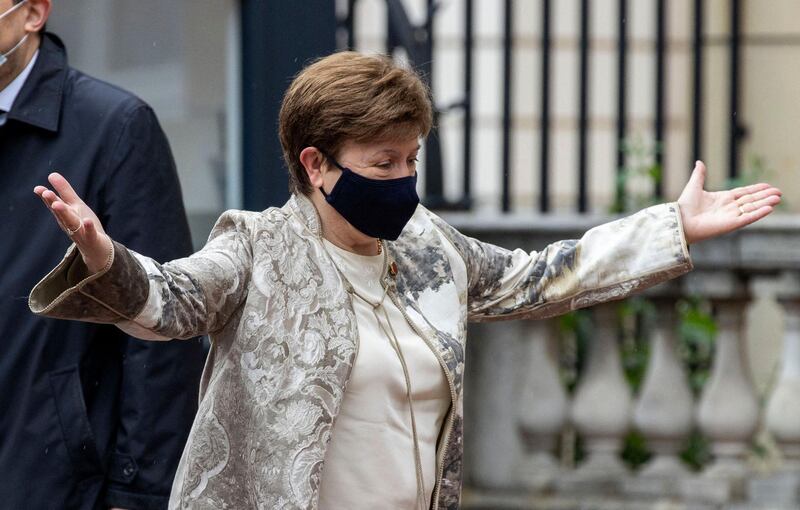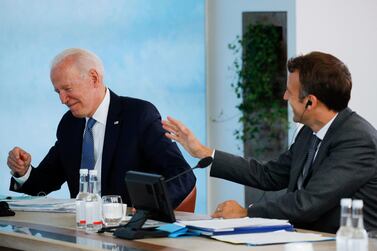The International Monetary Fund welcomed the support extended by the Group of Seven in expanding the fund's emergency reserves by $650 billion and said it would work with the group to re-allocate $100bn to aid post-pandemic recovery in some of the world's poorest countries.
The G7's support for the IMF's special drawing rights (SDRs) will help boost global reserves and will provide more space for necessary fiscal expenditures to recover sustainably, IMF managing director Kristalina Georgieva said in a statement on Sunday.
"Leaders also expressed a willingness to magnify its impact including through voluntarily channeling SDRs and/or budget loans to reach a total global ambition of $100bn for the most vulnerable countries," she said.
"In the coming months, I will be exploring with our membership options on how, together, we can get this done."
The G7 meeting was a "consequential summit", Ms Georgieva said, noting the group was stepping up efforts to exit the crisis.
"I can assure you that the IMF is playing its part.”
The coronavirus pandemic, which shuttered borders and disrupted trade, has tipped the world economy into its worst recession since the 1930s. However, the health crisis has disproportionately affected the poor countries that are lagging behind while the developed nations recover on the back of vaccinations.
The world's biggest 20 economies rebounded to pre-pandemic levels in the first quarter of 2021, according to a recent report by the Organisation for Economic Co-operation and Development.
However, the pandemic has reversed poverty reduction gains in many low-income countries, further aggravating the inequality between the developing and developed countries, the World Bank said last week in its economic forecast.
Grateful for #G7Summit support for a $650 billion SDR allocation.
— Kristalina Georgieva (@KGeorgieva) June 13, 2021
We at the IMF will work to quickly implement the allocation and present options to magnify the impact for countries in greatest need, including voluntary SDR channeling and stepped-up concessional finance.
The fund's $650bn SDRs is one of the largest issuance and will be channelled to help some of the world's poorest countries free up resources to cope with the Covid-19 pandemic. It is seen as an integral tool to avoid an uneven global recovery, where poor countries languish from the impact of the pandemic while richer countries recover at a much faster pace.
The fund last issued SDRs during the 2009 global financial crisis but Ms Georgieva said earlier this year in a blog post that repeating the move could help the world economy now.







